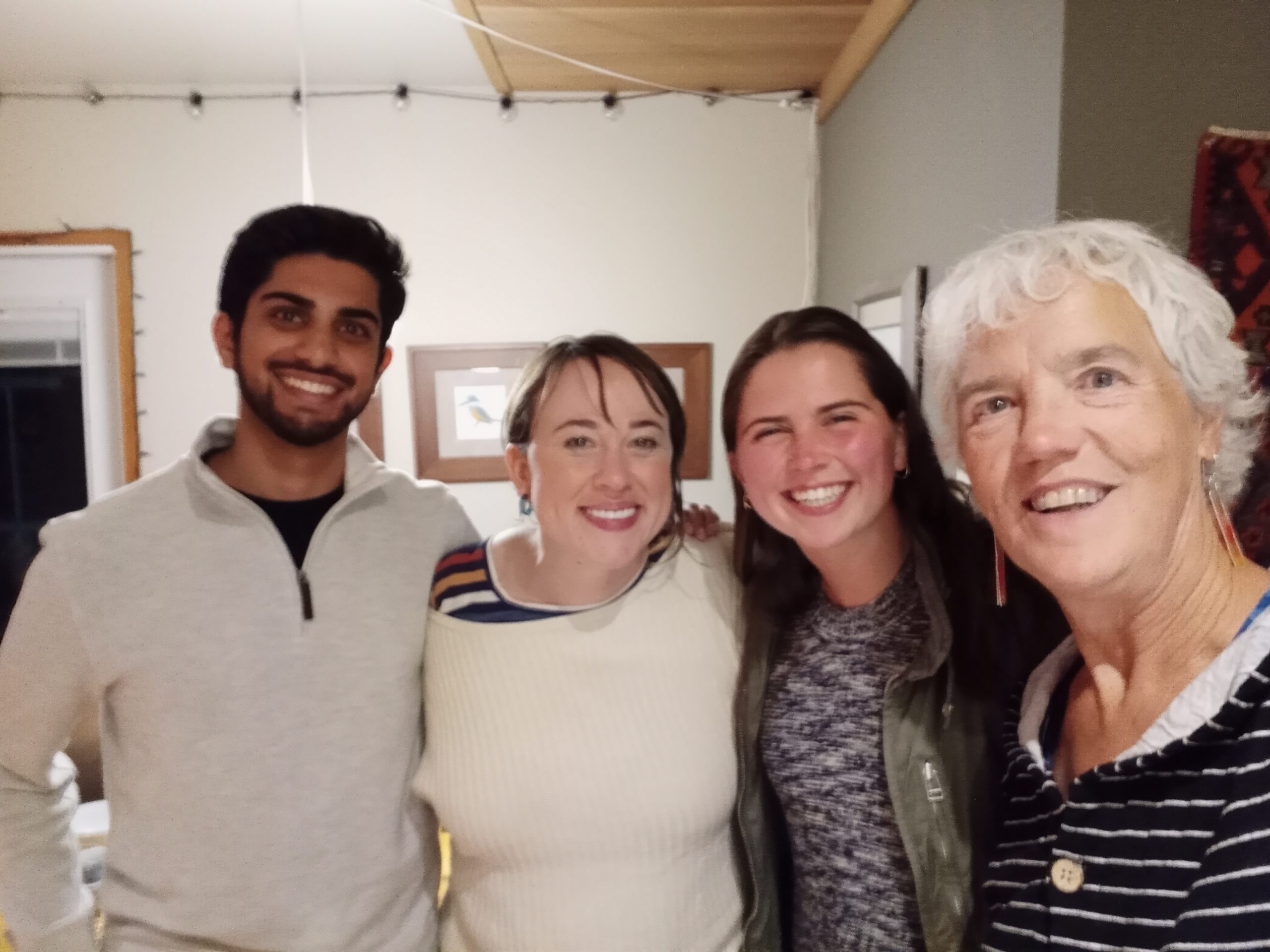Each fall, UW School of Medicine medical students with curious minds and a hunger for connection gather in-person or online for Student-Alumni Informational Discussions (SAID).
Some are simply eager to hear about the journey of a more experienced physician in a casual, low-pressure setting. Others come with specific questions for the alum hosting the event, hoping to glean insights on how to troubleshoot problems in the operating room or narrow down a specialty. Students are invited to bring anything and everything to the table.
Traditionally, these events took place in a restaurant or home in Seattle or Spokane. While participating alumni gamely shifted to a virtual format during the pandemic, SAID will take a hybrid form going forward in order to reach a wider pool of students and alumni across the five-state WWAMI region.
Putting students at ease
Jane Lester, MD ’86, Res. ’90, enjoyed participating in a virtual SAID event during the pandemic, but hosting groups of students in her home for dinner is her bread and butter — quite literally.
She typically pairs a hearty main dish with garlic bread and a salad, offering hospitality to two to six busy students who may not have eaten a home-cooked meal in months.
Lester, who practiced pediatric medicine for 30 years before retiring in 2020, has taken part in nearly every SAID event offered in the past 20 years.

Get Involved With SAID
Student-Alumni Informational Discussions (SAID) matches alumni with a small group of two to six students for lively conversations about professional practice, residency, work-life balance and more. You can host an event in your home, at a restaurant or virtually via Zoom. For both students and alumni, SAID is a great opportunity to connect and learn from each other. If you’d like to learn more about hosting a SAID event in fall 2023, visit uwmedalumni.org/said.
“I first got involved because it seemed like a fabulous way to interact with students again,” she says. “I love the energy of young people and the questions they ask.”
When students arrive at her house for dinner, she sets them at ease by reminding them that she is not their professor or supervisor. “I have no say over their future,” she says. “No matter what they ask or share with me, there is no reporting back to anyone. Once they realize that, they relax.”
Then, she shares her story. Right off the bat, students who may fear that they have failed to define their career plans quickly enough find reassurance in her unconventional path to medicine.
A native East Coaster, Lester moved to the Seattle area in the late 1970s to teach math. While she enjoyed working with students, she was scanning the horizon for a new challenge within a few years.
“My students kept moving on, and I was still there,” she says. “I knew it wasn’t quite right for me, but I had no idea what was next.”
One day, she was watching a documentary about a group of pediatric oncologists who treated childhood leukemia. Something clicked in her, inspiring her to pivot to a career in medicine.
Her time at UW School of Medicine reinforced her passion for serving children and their families. After graduation and residency, she entered pediatrics at Everett Clinic, where she would spend her career.
“A lot of people would look at my story and think it was unfortunate that I started off in the wrong direction,” says Lester, “but I never would have chosen medicine straight out of college. I try to encourage other students who took a more roundabout path to embrace what they have learned along the way.”
Grappling with hard questions
Most students who attend a dinner hosted by Lester have expressed an interest in pediatrics. In her experience, they frequently ask questions about remaining engaged when seeing the same types of cases over and over.
“I tell them I never had the same day twice,” says Lester. “Students often think that being a pediatrician is about treating earaches. In my experience, we are 50% parent-coach, 25% psychologist, 20% social worker and 5% medical doctor. Once you go beyond the chief complaint, you discover that people want to be heard and validated. They are looking for moral support.”
She is transparent with students about the challenges of guiding patients through complex situations, especially when they involve mental health crises, but she also emphasizes the joy of “standing in the gap” for entire families.
Over the years, Lester has noticed an increasing number of students asking about family planning and work-life balance. “Most students want to know when to have a family, and there is no good answer,” she says.
After giving birth to her first daughter during residency, Lester took a year away from medicine before joining Everett Clinic in a part-time capacity. In an hour-sharing arrangement with another pediatrician that lasted throughout her career, she worked two days a week while her colleague worked the other three.
Tarun Gandhi, a second-year medical student, recently attended a SAID dinner hosted by Lester. Previously, Gandhi had attended another dinner that was more focused on public health and epidemiology — the specialty of the MD/PhD students in his group — but the conversation at Lester’s house kept coming back to crafting a career that is conducive to having a family.
“I’m passionate about building a career in medicine, but I have definitely had concerns about how much flexibility I will have to spend time with my future family,” says Gandhi. “Dr. Lester provided valuable insights on what it means to advocate for yourself and build the life you want.”
Lester pointed out the importance of comparing leave programs offered during residency, for example, along with arranging a schedule in a way that matches personal goals.
“I was surprised by how kind and open she was,” says Gandhi, who plans to attend future SAID events as his schedule permits. “This was an excellent opportunity to collect pearls of wisdom I would not otherwise encounter in a clinical setting.”
Lester is quick to point out the benefits of hosting from an alumni perspective.
“I recommend SAID to any fellow alum who wants to connect with interesting, passionate young people in their field,” she says. “It’s so energizing to hear about what matters to the next generation and leverage your experience to help someone else.”
By Ashley Rabinovitch

